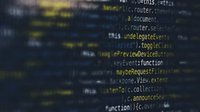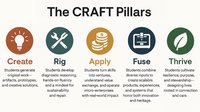Conducting virtual discussion webinars are a new feature for the Learning Counsel. Beginning April 2 with the first of eight Emergency National Virtual Discussions, the Learning Counsel has presented many of the nation’s top virtual learning experts in a no-holds barred format to give school districts the best available intelligence to help them improve online learning during the COVID-19 crises.
Guests on the virtual event webinars are unscripted and unfiltered, sharing their own experiences in this time of incredible transition. This is a dangerous time in education, and our nation’s learners are at great risk. The pressure for every school and district to get it right is enormous, and guests appearing on the webinars have bravely shared what they have learned, often getting into the weeds with their failures as well as their triumphs.
Each of the Emergency National Virtual Discussions as well as the current Crossroads discussion series has been extremely well attended, and all discussions are available for listening and further review on the Learning Counsel website. Below is just a sample of the comments you will hear when you listen to the discussions.
From Dr. David Long, Superintendent at the Beaver County School District
“We've continued to employ mental health professionals throughout this. It became a moment of clarity for everybody in terms of wrestling with our digital life and our social isolation and all the things that we're dealing with. We started setting up standards immediately for what our expectations were. One standard was that the staff would have somebody that was a partner or mentor on the staff that was contacting them daily.”
“One of the big deals that happened with our teachers immediately going into this is they didn't know when to turn off or to take a walk or have a moment for themselves. I had teachers that were working 10, 12 hours a day on a consistent basis and thinking that they were only going to have to keep that up for two or three weeks. As we learned this was going to be something that was through the rest of the school year, it became critical to start having conversations with staff that were doing that and get them into a better routine and a better place as well.”
From Dayna Guyton, the DODEA (Department of Defense Education Activity) Grant/AVID Director at Lackland Independent School District
“You cannot pour from an empty cup, with regards to teachers going into this and really never ever turning themselves off from work, constantly being at work, constantly working on something, constantly being available to students, answering questions. We wanted to take care of that. We need to check in, not just to say what are we doing for the students? We have to the check in to say, how are you guys doing? We all left for spring break prepared to come to have a great break and then come back. But nobody expected to go on spring break and not come back at all.”
From Claudia Castillo, the Social Emotional Support Coordinator and Interventionist at Lackland Independent School District
“Our counselors and staff have been providing check-ins with students who have a 504 and IEP or who are identified as students that needed additional behavioral support. Our teachers also reach out to counselors whenever they check in with a student who is struggling. The counselors then reach out to the parents and ask what they can do to help. One of the first things that I started to teach our school was how we ask questions. Many times, people want to ask, why is this happening? Or why is this student acting the way that they are? But I stepped back and had them ask in a different way because many times people don't know why they do the things that they do.”
From Aaron Cooke on the School Improvement Team at Southern Oregon ESD
“One of the main things that I do is help teachers to be effective at home. Teachers will often not ask for things that would really increase their efficiency. You need to have conversations with them about their workspace at home, about how to lay that out, about how to use different tools sets, how to try essentially using teachers from home. One of the things we always used to say is to try to have a place behind the door, so that if there are things going on in your house, they wouldn't necessarily affect you while you were teaching. We spent a lot of time talking about, what's a good learning environment, what's inappropriate or the appropriate systems for teaching?”
“The other big thing is really utilizing the teachers and finding islands of excellence and promoting those out. So that teachers can see what other teachers are doing. Right now, a lot of them are scared, thinking ‘I can't do this, or I don't know how to do it.’ But when they see something that one of their own partners is doing, they're more likely to reach out and see how they could do that and then to potentially work from it.”
From Dr. Stacey Perez, the Principal at Classical Academy High School
“The community is really, really important,” said Perez. “On the social emotional side, the school counselor and I both make videos weekly just to be there for the students, letting them know, ‘Hey, we're struggling too. This is a difficult time, but we're here to support you and we can get through this together.’ We know that they need those touchpoints, so although we have the physical environment, we started as a full online program, we've kind of transitioned back to that and now we're back to the online model.”
From Ivy Nelson, the Education Technology Manager at Belton School District
“We are in this place of growth where we have some different areas with more technology; it's been a challenge while we've transitioned to distance learning and we're not virtual learning because not everyone has the technology. So, as we're growing and as we're getting the resources for everyone, we have to be creative about how we're doing it and we have to be flexible from building to building and class to class.”
From Phillip Jankowski, the Assistant Superintendent at Armada Area Schools
“We want teachers to really give kids opportunities to explore things and to give them the ability to give feedback to kids and those kids to share things, whether it's recording something where they're explaining something to their parents, whether they're taking a picture of an assignment that they did or a project or they were doing something in their backyard. And that's gone over very well with the community and with the staff. And our goal has been making it less about compliance and more about quality learning opportunities for students.”
From Howard Stephenson, Retired State Senator in the Utah Legislature
“This is my biggest concern. And if I go postal, I think I would convince the jury that I was right because this digital teaching and learning river is a mile wide and an inch deep in most places and it's just not worth the time. The thing you need to focus on is those tools that provide immediate interactive, adaptive feedback while the student is doing the work. It's not about PDFs online. It's not about worksheets.”
“The exciting thing for me about the shutdown in the schools is that the authenticity of learning hopefully will become the new normal rather than this straight jacket of sit and get, or as I'm fond of saying, the teacher sprays and then prays that it sticks.”
Listen live, or go to the site and listen at your leisure
All the Learning Counsel virtual discussions are available free of charge to educators. Each one features top national experts currently working to improve the lives of their staff and students. There is no better, more relevant information available. Feel free to listen as often as you’d like, and to pass this information along to everyone that may benefit.
Also, please check the current schedule for the Crossroads discussions, which are running live through May 21st.











